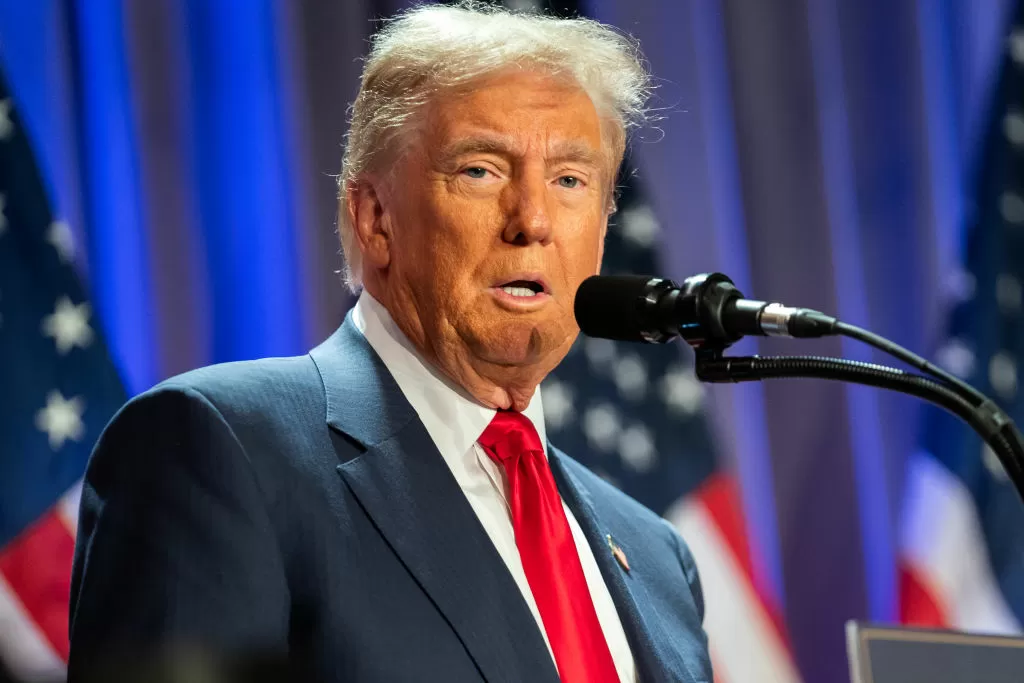Economists around the world are expressing concern over President Trump’s recent announcement of imposing tariffs on imported goods. The proposed plan aims to increase the cost of a wide range of products, from cars to electronics, in an effort to boost domestic production and protect American industries. However, many experts fear that this move could have a negative impact on the economy and ultimately harm consumers.
Tariffs are essentially taxes imposed on imported goods, making them more expensive for consumers. The idea behind this is to make domestically produced goods more competitive by raising the prices of imported products. While this may seem like a logical approach to protect local industries, economists warn that it could have serious consequences.
One of the main concerns is that the increased cost of imported goods will lead to higher prices for consumers. This means that everyday items such as cars, electronics, and household appliances will become more expensive, putting a strain on household budgets. This is especially worrying for low-income families who may not be able to afford these price hikes.
Moreover, the tariffs could also lead to retaliatory measures from other countries, resulting in a trade war. This would not only harm the US economy but also have a ripple effect on the global economy. Many countries rely on the US as a major trading partner, and any disruptions in this relationship could have serious consequences.
Another issue is the potential impact on American businesses. Many companies rely on imported goods for their production, and the increased costs could force them to raise their prices or even go out of business. This could result in job losses and a slowdown in economic growth.
Furthermore, the tariffs could also lead to inflation, as the increased costs of imported goods would likely be passed on to consumers. This would not only affect the prices of imported goods but also have a knock-on effect on the prices of domestically produced goods. Inflation could also lead to a decrease in consumer spending, which is a major driving force of the US economy.
While the intention behind the tariffs may be to protect American industries and create jobs, the reality is that it could have the opposite effect. Many economists argue that the tariffs could actually harm the very industries they are trying to protect. For example, the automotive industry relies heavily on imported parts, and the increased costs could make it more expensive to produce cars in the US. This could lead to job losses and a decline in the industry.
Moreover, the tariffs could also discourage foreign investment in the US. Many companies choose to invest in the US due to its open and competitive market. However, with the introduction of tariffs, the US may no longer be seen as an attractive destination for investment. This could have a long-term impact on the economy and result in a loss of potential job opportunities.
In addition to the economic concerns, there are also ethical considerations to take into account. The tariffs could have a disproportionate impact on developing countries that rely on exports to the US. This could further exacerbate global inequality and hinder economic development in these countries.
It is also worth noting that the tariffs could have a negative impact on the environment. With the increased cost of imported goods, consumers may be less likely to purchase environmentally friendly products, which are often more expensive. This could result in a decrease in demand for these products and ultimately harm efforts to combat climate change.
In conclusion, while the intention behind President Trump’s tariff plan may be to protect American industries and create jobs, the potential consequences are cause for concern. Economists warn that the tariffs could lead to higher prices for consumers, a trade war, job losses, inflation, and a slowdown in economic growth. It is important for policymakers to carefully consider the potential impact of these tariffs and explore alternative solutions that would not harm the economy and consumers.


